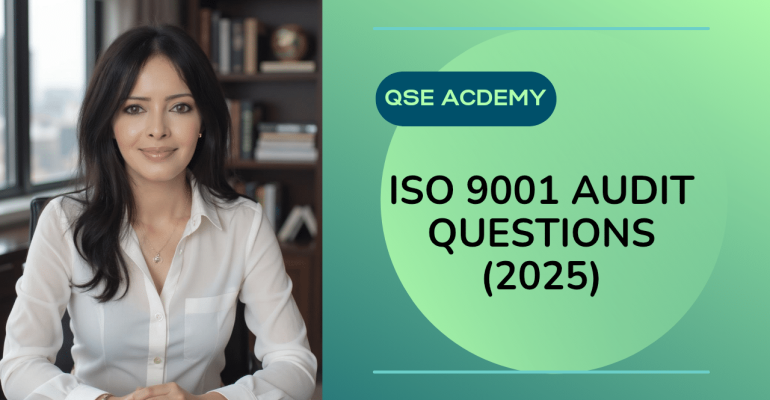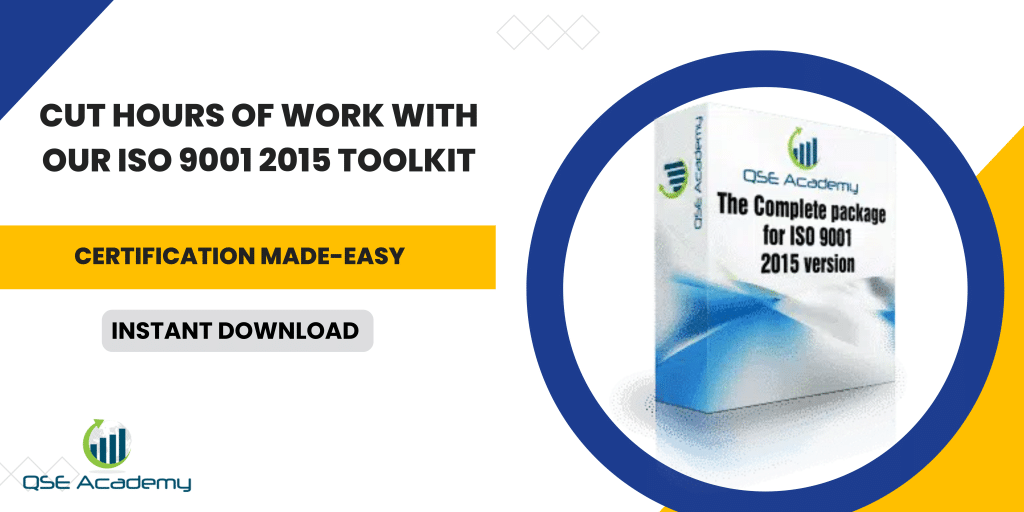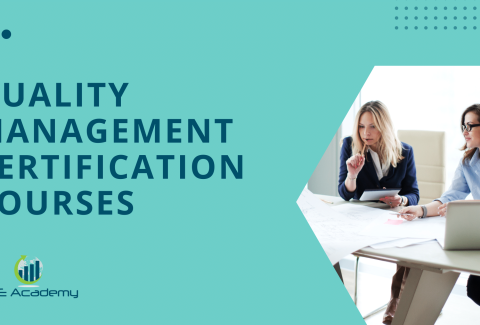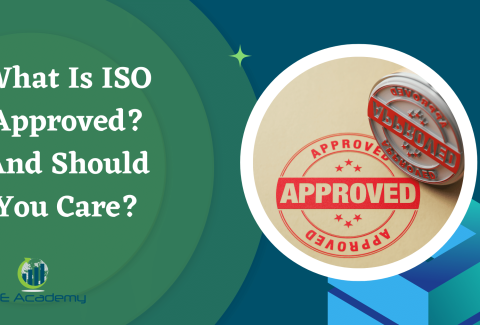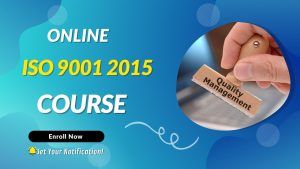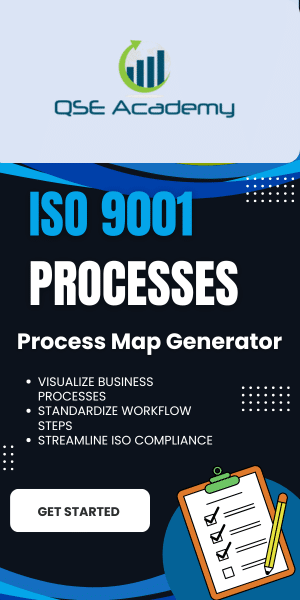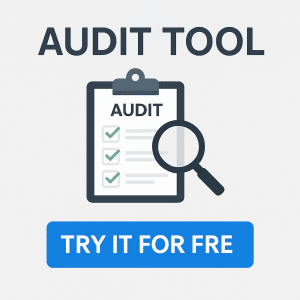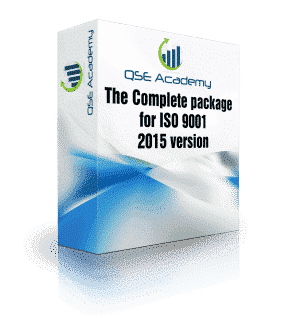ISO 9001 Audit Questions Your Auditor Will Ask (2025 Update)
Last Updated on October 13, 2025 by Hafsa J.
ISO 9001 Audit Questions (2025): What Your Auditor Will Really Ask
Let’s get real—after 12 years as an ISO implementor, I’ve seen it all. Some of my clients walk into their ISO 9001 audits confident and prepared, fully knowing what to expect. Others, unfortunately, show up stressed, overwhelmed, and unsure about how the process unfolds. Here’s the critical difference: preparation.
Here’s what I’ve noticed consistently—around 90% of my clients who took the time to clearly understand and anticipate auditor questions passed their ISO 9001 audit on the very first try. That’s no coincidence. Knowing exactly what auditors will ask and how to respond can transform your audit day from stressful to smooth.
With ISO 9001 audit practices evolving in 2025, it’s more important than ever to stay ahead. In this guide, I’m sharing the exact audit questions your ISO auditor will ask this year, along with clear guidance on how to answer confidently. By the end, you’ll know precisely how to prepare, what evidence to provide, and how to ensure your organization passes with flying colors.
Understanding the ISO 9001 Audit Process (2025)
Let’s start with the basics—ISO 9001 audits aren’t what they used to be, especially after recent shifts toward digitalization and remote practices. Over the past few years, I’ve seen the auditing process evolve dramatically. Auditors are now less concerned with simply ticking off checklists and more focused on truly understanding your business environment, risk management strategies, and continuous improvement efforts.
In 2025, online and remote audits have become the norm rather than the exception. That means your documentation and evidence must be crystal-clear, easily accessible online, and well-organized digitally. Auditors today expect immediate access to your Quality Management System (QMS), documentation, and process records—no fumbling allowed!
Here’s what’s critical now:
- Context matters more than ever: Auditors want a clear picture of your organization’s internal and external influences—your market, your stakeholders, your unique risks.
- Risk Management is non-negotiable: Simply identifying risks isn’t enough anymore. Auditors expect documented processes showing exactly how you’ve handled these risks, monitored outcomes, and adapted along the way.
- Continuous Improvement as evidence: It’s no longer enough to say you’re improving. You need solid proof—metrics, corrective actions, and real examples of changes that made a measurable difference.
- Evidence of Actual Practice: Auditors have become skilled at distinguishing between procedures written just for compliance and processes actually integrated into daily business operations.
In my experience, the organizations most prepared for this shift are the ones who embrace a proactive mindset—staying organized, anticipating auditor questions, and clearly demonstrating they live their QMS every day.
ISO 9001 Audit Questions About Your Context & Leadership
First, take a breath—the auditor is most likely on your side. Their primary goal is compliance, not finding faults. They’re typically looking to confirm that your organization is genuinely committed to quality standards.
One critical question will be about how you’ve defined your organization’s internal and external context. Be ready to clearly explain and provide evidence about the key issues affecting your organization’s objectives, from market conditions to stakeholder expectations.
You’ll also be asked how your quality objectives align with your overall business goals. Auditors expect to see clear, documented connections between quality targets and strategic direction. Have specific examples ready, like strategic planning documents or balanced scorecards, to demonstrate this alignment clearly.
Lastly, auditors will inquire about leadership’s commitment to the Quality Management System (QMS). It’s crucial to show evidence such as leadership communications, meeting minutes, and documented management reviews that clearly indicate leadership actively supports and engages with your QMS.
Over 90% of companies pass their ISO 9001 audit on the first try. Audit day isn’t something to fear—it’s a chance to celebrate months of hard work. But celebration only feels good when it’s backed by real confidence and solid preparation.
Key Audit Questions Around Planning and Risk Management
Expect auditors to ask, “How have you identified and managed key risks and opportunities related to quality?” Here, the auditor seeks evidence of proactive risk identification and management practices. Make sure you can demonstrate your documented approach clearly, showing processes or frameworks used.
Another important question is, “Can you demonstrate a clear, documented risk assessment process?” Auditors want to see that your risk assessment isn’t just theoretical—provide clear, concise documentation showcasing your methods and assessments.
Finally, auditors typically ask, “What specific actions were taken to address identified risks, and how are outcomes monitored?” Prepare specific examples of actions implemented, documented evidence of monitoring, and measurable results to illustrate the effectiveness of your risk management strategies.
Essential Questions About Operational Control and Documentation
In this phase, auditors typically spend significant time interviewing employees beyond leadership and top management. It’s important that your entire team understands their role in the QMS and can speak confidently about their responsibilities.
The auditor will ask, “How are key processes documented, and how do you ensure they are consistently followed?” Employees need to clearly explain and demonstrate the documentation and standard operating procedures they follow daily.
Another common question will be, “Can employees easily access and understand your QMS documentation?” Ensure your documentation is organized, accessible, and written in clear, understandable language. Be ready to show the auditor practical examples.
Lastly, be prepared for auditors to request, “Show me examples where operational procedures were updated following non-conformances.” Have specific, documented examples ready, showing clearly how changes were communicated, implemented, and monitored to prevent recurrence.
For effective preparation, consider creating a quick-reference checklist or ideal documentation practices example to guide your team.
[wpcode id=”47943″]
Questions Auditors Will Ask About Performance Evaluation & Improvement
This is the phase where auditors get practical, verifying how well you’re truly managing quality on the ground. They’ll start by asking, “How do you measure quality performance and analyze your results?” Be ready with clear documentation showing regular monitoring, performance dashboards, analysis reports, and evidence of management reviews.
Next up, expect this critical question: “What metrics are you tracking, and how do these metrics directly influence your quality improvements?” Auditors want to see practical metrics—like customer satisfaction rates, defect rates, response times, or patient outcomes—clearly tied to measurable improvements.
Finally, auditors will inquire, “Can you show evidence of corrective actions and their effectiveness?” Provide solid documentation showing how you’ve identified issues, the steps you’ve taken, and proof these problems haven’t repeated.
But here’s where it gets industry-specific:
-
Manufacturers:
Auditors usually head directly to the production floor. They’ll inspect processes, machinery, quality control stations, and ask operators specific questions. Be ready to show production logs, inspection reports, machine maintenance records, and corrective actions related to product defects or process breakdowns. -
Service-based Businesses:
Expect auditors to thoroughly review your service delivery records, customer feedback data, and employee training documents. They’ll likely interview front-line employees to confirm consistency and reliability of service. Have clear, accessible records demonstrating your corrective actions in response to service issues or customer complaints. -
Healthcare Organizations:
Auditors focus heavily on patient care records, medical procedure logs, compliance with healthcare standards, and maintenance of medical equipment. They’ll verify how quickly and effectively your organization handles non-conformances or incidents directly affecting patient care or safety.
By clearly demonstrating your approach with industry-specific evidence, you’ll effectively prove your commitment to ongoing quality improvement.
Common Surprise Questions (Be Prepared!)
During audits, there are always a few surprise questions designed to gauge how deeply quality practices are embedded across your entire organization. Auditors use these to verify your genuine compliance and quality culture. Being caught off-guard isn’t the issue; being unprepared is.
One common surprise question auditors love to ask is:
“What recent non-conformances have you identified internally, and how did you handle them?”
This isn’t about perfection—it’s about your transparency, responsiveness, and effectiveness in handling issues. Have examples ready. Clearly explain the non-conformance, your root-cause analysis, the corrective actions taken, and how you verified that these actions were effective.
Another favorite surprise question is:
“What are some ongoing challenges you’ve faced with your QMS, and how are you addressing them?”
Auditors respect honesty here. Identify a real challenge—perhaps a recurring minor issue like documentation delays or training gaps—and clearly outline the proactive steps your organization is taking to tackle this problem.
Lastly, auditors frequently test employee understanding by asking questions such as:
“Can your employees clearly explain their roles and responsibilities in maintaining ISO 9001 compliance?”
Every team member should confidently describe their daily responsibilities and how these contribute to the quality objectives. Consider preparing short scripts or clear summaries for your teams so they feel comfortable during these auditor interactions.
Preparation here can make all the difference, demonstrating a true culture of quality and compliance throughout your organization.
Your Path to a Smooth Audit
Audit day is here—the culmination of at least three months of hard work and preparation. If you’ve followed these guidelines, there’s a good chance today will feel more like a celebration than a stressful evaluation. Keep in mind, minor non-conformances like minor documentation gaps or occasional procedural inconsistencies might be pointed out—these aren’t unusual and should be seen as opportunities for improvement. Be open, avoid arguing, and demonstrate your willingness to correct and improve promptly.
Your Quality Manager or QMS Pilot must thoroughly understand your non-conformance procedure and confidently lead the corrective action process. Major non-conformances, such as repeated failures to meet critical processes or widespread lack of compliance, could risk your certification, so these must be taken seriously.
Ready to move from ISO 9001 theory to implementation?
Get the exact tools you need to write your documentation, train your team, map your processes, and pass your audit—without wasted time or guesswork.

make ISO standards less intimidating and more approachable for everyone.
Whether it’s ISO 9001, ISO 22000, or the cosmetics-focused ISO 22716, I’ve spent my career
turning complex jargon into clear, actionable steps that businesses can actually use.
I’m not here to call myself an expert—I prefer “enthusiast” because I truly love what I do.
There’s something incredibly rewarding about helping people navigate food safety and quality management systems
in a way that feels simple, practical, and even enjoyable.
When I’m not writing about standards, you’ll probably find me playing Piano 🎹, connecting with people, or diving into my next big project💫.
I’m an engineer specialized in the food and agricultural industry
I have a Master’s in QHSE management and over 12 years of experience as a Quality Manager
I’ve helped more than 15 companies implement ISO 9001, ISO 22000, ISO 22716, GMP, and other standards
My clients include food producers, cosmetics manufacturers, laboratories, and service companies
I believe quality systems should be simple, useful, and efficient.

